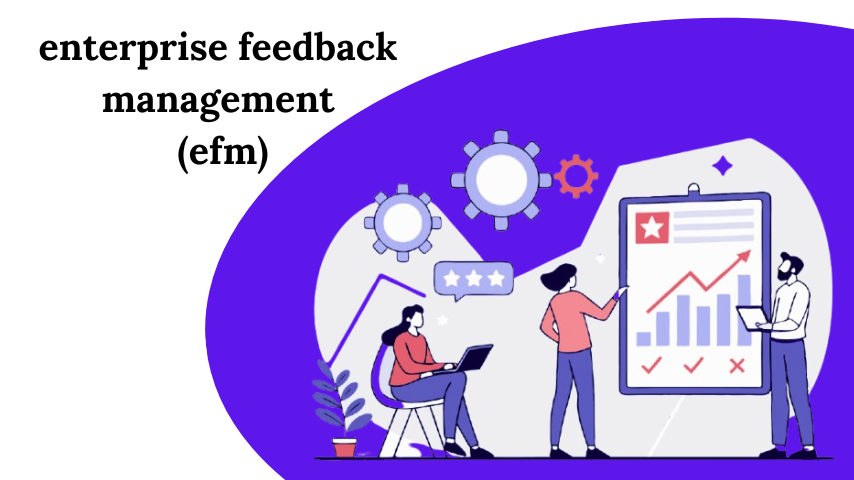In today’s competitive business landscape, organizations are increasingly recognizing the critical importance of understanding and acting on customer, employee, and stakeholder feedback. Enterprise Feedback Management (EFM) systems have emerged as a powerful solution to help businesses capture, analyze, and leverage valuable insights across their entire ecosystem.
What is an Enterprise Feedback Management (EFM) System?
An Enterprise Feedback Management (EFM) system is a comprehensive software platform designed to collect, manage, analyze, and distribute feedback from multiple sources within an organization. Unlike traditional survey tools, EFM systems provide a holistic approach to gathering and interpreting feedback across various touchpoints and stakeholder groups.
Key Components of an EFM System
Feedback Collection
- Multi-channel survey creation
- Real-time feedback capture
- Automated data collection mechanisms
- Integration with existing business systems
Data Analysis
- Advanced analytics tools
- Sentiment analysis
- Predictive insights
- Customizable reporting dashboards
Actionable Insights
- Detailed performance metrics
- Trend identification
- Benchmarking capabilities
- Recommendation engines
Why Enterprise Feedback Management Matters
Benefits for Businesses
- Improved Customer Experience Organizations can identify pain points, understand customer needs, and create targeted improvements that enhance overall satisfaction and loyalty.
- Enhanced Employee Engagement EFM systems help companies gauge employee sentiment, address workplace concerns, and create more positive work environments.
- Data-Driven Decision Making By providing comprehensive insights, EFM systems enable leadership to make informed strategic decisions based on actual feedback and experiences.
How Enterprise Feedback Management Systems Work
Feedback Collection Mechanisms
Customer Surveys
- Net Promoter Score (NPS) surveys
- Post-purchase questionnaires
- Customer satisfaction (CSAT) assessments
Employee Feedback
- Annual engagement surveys
- Pulse surveys
- 360-degree feedback mechanisms
Stakeholder Input
- Vendor satisfaction surveys
- Partner experience assessments
- Investor feedback channels
Advanced Data Processing
Modern EFM systems leverage sophisticated technologies to process feedback:
- Artificial Intelligence (AI)
- Machine Learning algorithms
- Natural Language Processing (NLP)
- Real-time data visualization
Implementing an Enterprise Feedback Management System
Key Considerations
Organizational Alignment
- Define clear feedback objectives
- Establish cross-departmental collaboration
- Create a feedback-centric culture
Technology Integration
- Compatibility with existing systems
- Scalability
- Data security and compliance
- User-friendly interface
Continuous Improvement
- Regular system updates
- Ongoing training
- Periodic review of feedback strategies
Challenges in Enterprise Feedback Management
Common Obstacles
- Data overload
- Lack of actionable insights
- Inconsistent feedback collection
- Limited cross-functional communication
Mitigation Strategies
- Implement robust filtering mechanisms
- Develop clear feedback action plans
- Utilize advanced analytics
- Foster a culture of continuous improvement
Selecting the Right EFM System
Evaluation Criteria
Functionality
- Comprehensive survey design
- Multi-channel support
- Advanced reporting capabilities
Integration
- CRM compatibility
- HR system synchronization
- API availability
Scalability
- Ability to grow with your organization
- Flexible pricing models
- Customization options
Industry Applications of EFM Systems
Sector-Specific Use Cases
- Retail: Improving customer experience
- Healthcare: Patient satisfaction tracking
- Technology: Product development insights
- Financial Services: Customer and employee engagement
- Education: Student and faculty feedback management
Future Trends in Enterprise Feedback Management
Emerging Technologies
- AI-powered sentiment analysis
- Predictive feedback modeling
- Real-time emotional intelligence tracking
- Automated recommendation systems
Q1: What distinguishes an EFM system from traditional survey tools?
Enterprise Feedback Management systems offer comprehensive, integrated approaches to feedback collection and analysis, going beyond simple survey creation to provide actionable insights across multiple organizational dimensions.
Q2: How secure are EFM systems?
Reputable EFM systems employ advanced security protocols, including data encryption, access controls, and compliance with international data protection regulations.
Q3: Can small businesses benefit from EFM systems?
Yes, many EFM solutions offer scalable options suitable for businesses of all sizes, allowing organizations to start small and expand their feedback management capabilities.
Q4: How often should feedback be collected?
The frequency depends on your specific business needs, but most organizations benefit from a mix of periodic comprehensive surveys and real-time feedback mechanisms.
Q5: What is the typical ROI of an EFM system?
While ROI varies, businesses typically see improvements in customer retention, employee engagement, and operational efficiency that far outweigh the system’s implementation costs.
Conclusion
Enterprise Feedback Management systems represent a transformative approach to understanding and improving organizational performance. By providing comprehensive insights across customer, employee, and stakeholder experiences, these systems enable data-driven decision-making and continuous improvement.
As technology continues to evolve, EFM systems will become increasingly sophisticated, offering even more nuanced and actionable insights. Organizations that embrace these tools will be better positioned to navigate complex business landscapes, drive innovation, and maintain competitive advantages.
The key to success lies not just in implementing an EFM system, but in creating a holistic culture that values feedback, listens actively, and responds strategically.
Final Takeaway: Enterprise Feedback Management is more than a technology—it’s a strategic approach to understanding and enhancing organizational performance through meaningful, actionable insights.



